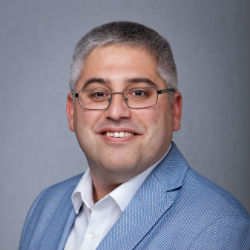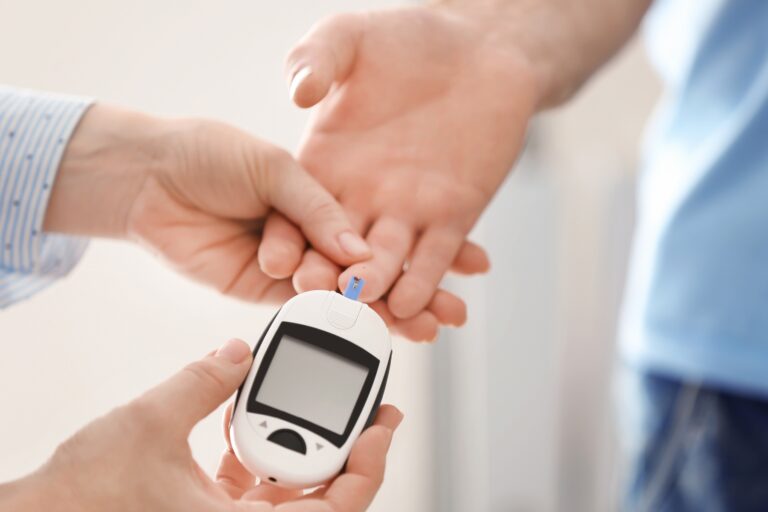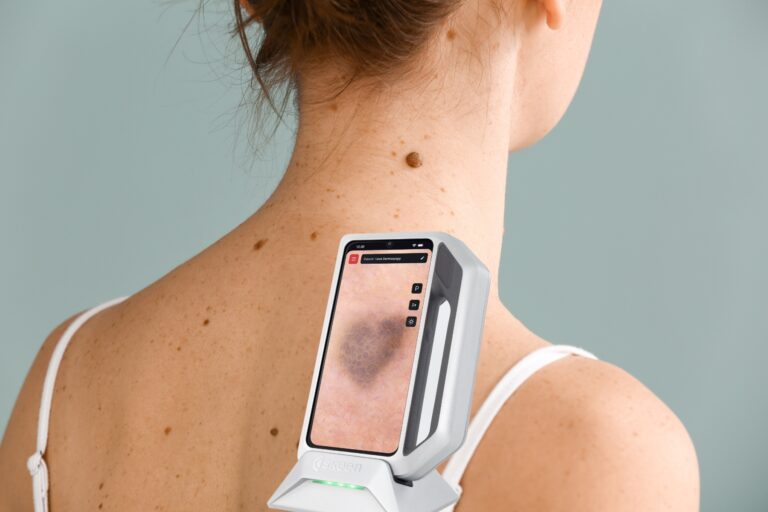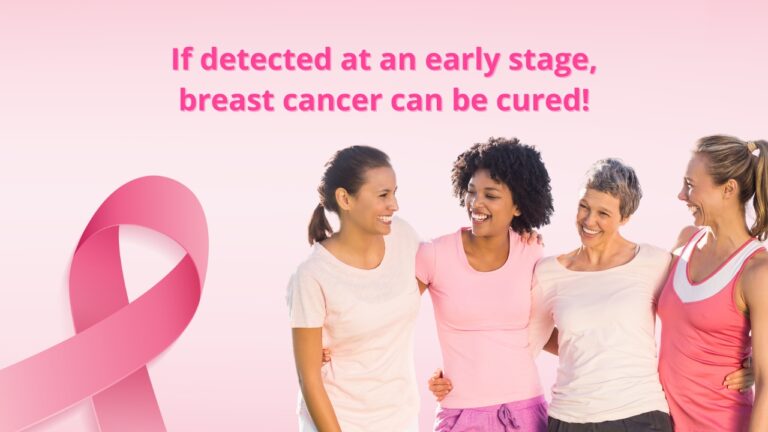Why did you become a doctor? Why did you choose orthopedic surgery as your specialty?
This is a tough question. For me, it came subconsciously. My mom is a kindergarten teacher, and my dad graduated from technical university. I went to high school with the intention to get a degree in computer science and everyone was convinced that I would choose some technical career. However during junior year I went to the medical school and signed up for preparatory tutoring in physics and biology, then I went home and told my parents that „I’m going to be a doctor, please pay for these lessons.” They were dumbfounded to receive my announcement, but thankfully I performed very well in the preparatory classes, and a year later I was able to enroll into medical school. It’s hard to say why I became a doctor, but after my graduation, during our celebratory family lunch my mother pulled out a notebook from her purse. Turns out it was my composition notebook from elementary school. I wrote a story in it called „My family in 2010” when I was around 8 or 9 years old, in it I wrote that I will become a surgeon, I will have two kids, the type of car that I will own (I did end up having a car like that). So a lot of the things I wrote in there did end up becoming my reality. I ended up becoming an ortho and trauma surgeon. For a long time during university, I was preparing to become a surgeon, I used to joke that I will become a brain surgeon. When I was in my fourth year of medical school I attended my last surgical lecture, which was about sports surgery. It was held by a professor that worked at the sports hospital. During this lecture I fell in love with the fact that this field extends beyond general surgery, there is a field of surgery just for sports injuries and various musculoskeletal problems. By the end of the lecture, I knew that I wanted to work in this field. What might have pushed me a little further towards the medical field is that my dad was suffering from abdominal pain and had to have surgery several times, he also had life-saving surgery and these must have affected me.
old, in it I wrote that I will become a surgeon, I will have two kids, the type of car that I will own (I did end up having a car like that). So a lot of the things I wrote in there did end up becoming my reality. I ended up becoming an ortho and trauma surgeon. For a long time during university, I was preparing to become a surgeon, I used to joke that I will become a brain surgeon. When I was in my fourth year of medical school I attended my last surgical lecture, which was about sports surgery. It was held by a professor that worked at the sports hospital. During this lecture I fell in love with the fact that this field extends beyond general surgery, there is a field of surgery just for sports injuries and various musculoskeletal problems. By the end of the lecture, I knew that I wanted to work in this field. What might have pushed me a little further towards the medical field is that my dad was suffering from abdominal pain and had to have surgery several times, he also had life-saving surgery and these must have affected me.
What are the pros and cons of being a doctor?
It’s hard to work with people, so the pros and cons of being a doctor are the same. Patients are diverse, some are often dissatisfied or complain, however, when someone has surgery and rehabilitation goes well, then they are very grateful, that feeling is invaluable. While in general medicine a patient with a chronic illness is treated but there is no substantial improvement expected, in traumatology, say a fracture that requires surgery, the patient has a good chance of returning to a normal life. Of course, there are certain post-traumatic conditions where wear or deformity develops and there the recovery won’t be 100%, but certainly, the results will be tangible.
What makes FirstMed different from other places where you have practiced medicine?
This is a very complex question, it looks like I can only give complex answers to your questions. My career in FirstMed started in 2005 when I became a night receptionist. After two months I wanted to quit because it was unusual and I found it difficult, especially when in English I had to calm down an angry patient, or when I had to learn the process of billing out an invoice, which very complicated. After a while, I got over the difficulties, and now I’ve been working here for 16 years. In 2014 after I was done with my residency, they offered me a job here almost immediately, to come and work here as an orthopedic doctor. My first day here as an orthopedic doctor was in February of 2015, in the beginning, I was here for two hours/week, now it’s 3 days/week. Throughout my career, I’ve worked at multiple places, but what makes FirstMed different and higher in quality is the family atmosphere, I know almost everyone, many people for a very long time. The difference is that here I have time for every patient, not like at a public hospital. In a public hospital, I have to see 60-80 patients during my 12-hour shift, here patients come in half an hour intervals, so I have time to listen to their problems. It is often said that the personality of a good doctor also heals, but the reality is that you just have to be emphatic and listen to the patient’s problems. Another big difference is that here I have the supplies to provide the best care for every patient. I can leave satisfied after my shift is over, knowing that I did everything that I could to provide the best care for my patients.
Can you tell us a really positive story from FirstMed?
There was a British male patient in his fifties that we have treated for a very long time with an ongoing knee problem. We had multiple specialties involved because, in the beginning, it didn’t look like an ortho problem, based on the initial examinations. However, a repeat MRI scan showed that he had a torn meniscus, which I operated on. I ended up repairing his other knee as well because he had some problems with it as well. After year-long suffering, he was able to go back and play sports. He was so thankful for his recovery, that during the control visit he had tears in his eyes as he hugged and thanked me. After such an experience, one goes home recharged.
What do you consider when looking for a doctor for yourself or a family member?
This is a very interesting thing in Hungary because we still choose the doctor that has been recommended to us by a friend. We pick our doctor based on the word of mouth, I do the same thing. I either pick a doctor that I know and trust, and I know that he can help me with my problem, or I choose somebody who was recommended to me. For this reason, FirstMed is a very good place, because we have many specialties, and I can always ask my colleagues for recommendations. When somebody comes to me for help, I will gladly offer it, if it’s not my specialty then I will recommend somebody to them.
Beyond medical help, is there anything else you recommend to patients for faster recovery?
I usually give lifestyle advice to patients suffering from spinal problems, which is not necessarily a medical practice. I recommend them pillows and mattresses to use or supplements they should take because these can make a difference for them. This leads us back to the fact that here in FirstMed I have the time to talk to patients, about these kinds of things. I send a lot of my patients to my colleagues for physical therapy, because it can help them tremendously. The rehabilitation of an athlete after a sports injury is nothing without physical therapy. So orthopedic medicine goes hand in hand with physical therapy. I only recommend exercise to patients whose condition allows it.
What do you like to do in your free time?
What I like to do and what I have time for are two very different things. I love to exercise. What I wish I had more time for is to go hiking with my kids, teach them to love nature.
Thank you Dr. Bodnár for the interview. If you wish to make an appointment with him or any other doctor at FirstMed, please call +36 1 2249090.




